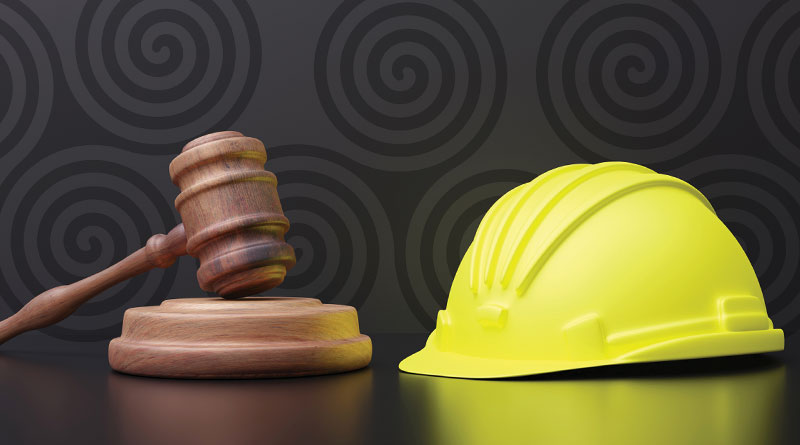Twist, Turns, and Staying Ahead of The Curve
Florida’s New Building Safety Law and the Impact on Timeshare Resorts
The 2021 collapse of the Champlain Towers South in Surfside, Florida resulted in the devastating loss of 98 lives. It was an unimaginable horror and inconceivable reality in the United States. The shock and magnitude of the tragedy prompted a swift response from Florida lawmakers. The new law took effect in May of 2022 and updated the statutory standards and timelines for adherence.
This law specifically targets condominiums, which includes timeshare properties. Prior to the tragedy, there were no statewide condominium building inspection requirements in Florida. Building safety rested in local jurisdictions’ hands. Given the nuance and overarching nature of the new regulation, it is important for boards and owners to monitor the changes closely.
Related: Lemonjuice Brings Creative Management to Aging Timeshare Resorts
Renewed Scrutiny of Board Fiduciary Responsibilities
Most board members are committed volunteers who have devoted multiple years of service to their associations. Some serving for decades, they have attended to owners with dedication and honesty. However, despite their best efforts to please owners, the days of artificially suppressed maintenance fees are in the rearview mirror.
To protect owners, guests, and the property, Florida board members must familiarize themselves with the law and act accordingly. Florida has always held volunteer boards to high standards of fiduciary duty and responsibility. Even so, a renewed and more intense focus on condominium boards has emerged. Any board member or officer of a condominium who intentionally fails to comply with the governing documents, bylaws, or who misuses funds, could be charged with a second-degree misdemeanor.
While it is possible for the board of directors to face criminal charges in specific situations, such charges are infrequent. Civil legal action, such as a lawsuit for breach of fiduciary duty, is a more common and appropriate means of resolving disputes between unit owners and the board.
Related: A Reserve Fund Success Story
Can’t Kick the Can Down the Road Any Longer
Florida’s new building safety law also introduced significant changes to reserve studies and inspections. Prior to the law, reserve studies were not mandated. Mandatory reserve studies are now required every three years along with ten-year structural integrity inspections. These reserve studies should be conducted by an independent and qualified company with knowledge in accounting, engineering, or architecture. The evaluation provided by the reserve study should detail the association’s reserve needs and funding requirements.
Boards must also include certain reserve-related information in their annual financial report. Reserve account status, the amount required to fully fund the reserves, and whether the association is fully funding the reserves must be reported.
Related: Reformed Reserve Funding Laws in Florida: Be Prepared
Taking things a step further, the law also prohibits the waiving of reserves – a practice that had become commonplace. State law requires that timeshare associations establish and maintain reserve accounts, and the funds must be sufficient and readily available to address the long-term repair and replacement requirements of the condominium’s common elements. Roofs, elevators, or plumbing systems must be funded for repair or replacement. Unfortunately, many HOAs have underfunded reserves because informed owners voted to waive reserves for years. The additional requirements are seeking to remedy this issue while creating greater transparency for owners.
Engineers and Architects – Protecting Structural Integrity
The Structural Integrity Reserve Study (SIRS) is required every ten years and must be conducted by a Florida-licensed professional engineer or architect. The first study is due by January 1, 2024 for all timeshares existing before July 1, 2022. Without SIRS, a building cannot be recertified for occupancy. The engineer or architect must perform a physical inspection of the building’s load-bearing components, in addition to its electrical, mechanical, plumbing, and life safety systems. Once the report is issued, and recommendations for repairs and maintenance have been made, action should be taken as soon as possible. Although the timeline for making repairs depends on factors such as safety, availability of funds, and any applicable state or local regulations, insurance companies typically want written assurances or repair completion before they will reissue a policy. It is in the best interest of the association to address necessary repairs as soon as possible to ensure the safety and structural integrity of the building.
Related: Hearty Reserve Fund Critical for Timeshares Industry
Around the Curve – More Changes Ahead
Florida’s new condominium building safety law also establishes the Florida Building Commission (FBC). The FBC is responsible for making recommendations pertaining to building safety standards and regulations in the State. Housed within the Department of Business and Professional Regulation, it consists of 27 members. Along with enforcement responsibilities, FBC will review Florida’s Building Code every three years and will adopt and update Florida’s Building Safety laws accordingly. Promoting the safety and welfare of residents living in Florida’s condominiums and cooperative buildings is now a top priority. Staying informed is vital to navigating these statutory changes. Be ready to take the necessary action steps.
For now, the jury is still out regarding the overall effect of these regulations on property insurance requirements. Florida property owners have been feeling the pain caused by sky-rocketing insurance rates for years. Insurance carriers that offer D&O insurance have indicated full compliance of the law will be required for policy renewal. Many believe the law will contribute to climbing rates for the foreseeable future.
Related: How Lemonjuice is Resuscitating Faltering Timeshare Resorts
If you haven’t already, you should contact the association’s manager and/or attorney for help complying with the new Florida Building Safety law, commonly known as SB 4-D. The Champlain Towers South disaster has sparked necessary discussions and safety regulations. It is incumbent upon the boards to take all necessary actions to comply with the new regulations.
Jan Barrow is the Vice President of Business Development for Lemonjuice Solutions. Jan holds ARDA’s Registered Resort Professional designation, is a licensed Florida Community Association Manager (CAM) and a Florida Realtor. She has 27 years in the timeshare industry working extensively with association boards and developers over her tenure. Jan can be reached at Jan.Barrow@Lemonjuice.biz or by 863.602.8804.



